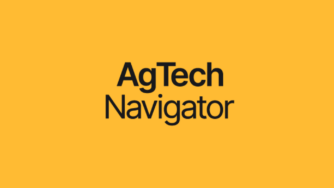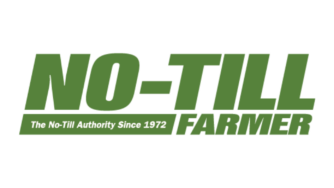CIBO Technologies, the company powering the transition to regenerative agriculture, has officially announced the decision to support organizations applying for the United States Department of Agriculture (USDA) Regional Conservation Partnership Program (RCPP). According to certain reports, it will provide the stated support through a solution which can be used for scaling the adoption of conservation and climate-smart agriculture practices. In case you weren’t aware, USDA has allocated $1.5 billion to RCPP to help farmers advance “climate-smart” agriculture, with organization required to apply for USDA funding before the July 2 deadline. However, in order to deploy these incentives at scale, strategic agriculture partners, as well as the farmers they work alongside, need solutions that streamline the application process and ensure proper presentation of all information. Fortunately, CIBO does exactly that, thus significantly reducing administrative costs. As for how it does so, the answer resides in the company’s CIBO Impact solution, which is end-to-end platform designed to manage large-scale regenerative agriculture programs. In the context of this development, the platform will offer its first-of-its-kind USDA program solution that ensures simplified RCPP application and management.
Talk about the stated value proposition on a slightly deeper level, we begin from the very platform’s promise of easy configuration and deployment in regards to RCPP programs. You see, CIBO Impact’s flexible programs engine allows organizations to seamlessly configure requirements for farmers. Complimenting the same would be application forms like Digitized National Resources Conservation Service (NRCS) and Farm Service Agency (FSA) that make the farmer enrollment process faster and more organized to eliminate the need for creating applications from scratch. More on the program’s optimal management would reveal that it can help partners evaluate applications and organize their project. On top of it, these partners can also leverage the same to customize ranking criteria, and therefore, prioritize applications before pre-populating job sheets and reviewing farmers’ operations schedules.
“RCPP funding has tripled since 2023. This provides an important opportunity to engage historically underserved farmers and broaden the pool of applicants by simplifying the application process and ensuring recipients follow through with the program,” said Daniel Ryan, CEO of CIBO Technologies. “By identifying resource concerns at the field level – according to NRCS guidance and CART guidelines – CIBO is helping partners and farmers identify eligible practices and streamline the application process.”
Rounding up highlights is the solution’s ability to track and report on progress. In simpler terms, such a feature translates to monitoring of applications’ progress by acres, practices, resource concerns, and farmer demographics. Not just that, farmers can also bank upon CIBO’s validated ecosystem model to calculate and report on the carbon footprint of project acres or the carbon intensity of commodities.
Among other details, we must mention how CIBO Impact can be adjusted to inform farmers if they are eligible to apply for private programs in their area, such as Scope 3 or carbon credit programs. Furthermore, the stated farmers’ contingent should be able to stack RCPP with private incentives, if allowed, so to maximize their cost share and return on investment when adopting conservation practices.


